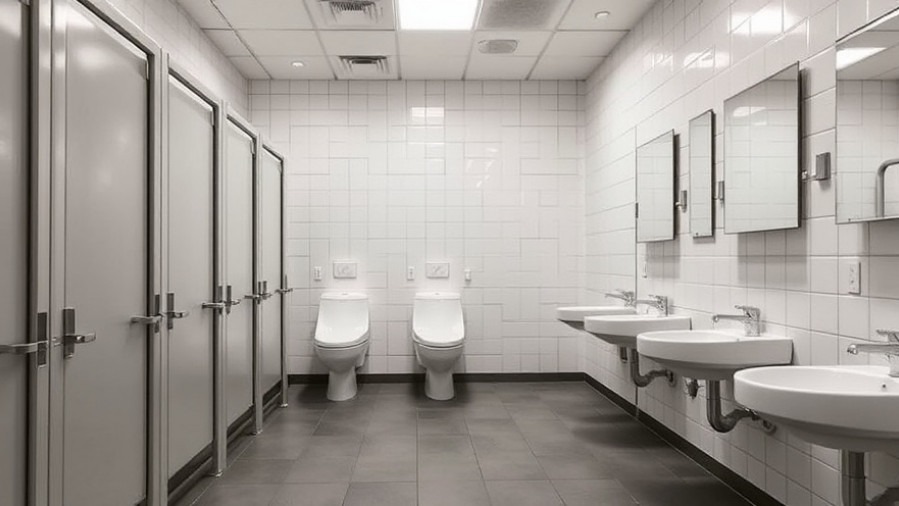
The Disturbing Discovery at Memorial Hermann Hospital
The shocking revelation of hidden cameras in restrooms at Memorial Hermann Hospital in The Woodlands has garnered widespread attention, with allegations centering on former patient care director Robert Shrader. As more victims come forward, this incident highlights profound issues surrounding privacy violations in healthcare settings. A lawsuit filed by a nurse known only by her initials, A.D., claims that Shrader not only installed hidden cameras but recorded numerous victims without their consent, breaching their trust and dignity.
A Timeline of Betrayal: How It Unfolded
In August 2025, while conducting routine maintenance, hospital construction workers stumbled upon the first concealed camera in a restroom, prompting an internal investigation. Discovered through a facility alert, the camera was later traced back to Shrader, accused of manipulating his authority to exploit vulnerable individuals, including patients and employees. Following the initial find, law enforcement identified over 300 videos on two hidden cameras positioned to capture images of individuals in various stages of undress.
Victims Speak Out: The Legal Ramifications
With Shrader now facing multiple charges for invasive visual recording, the fallout continues to grow. Texas attorney Tony Buzbee has filed a class-action lawsuit on behalf of both employees and patients potentially affected by these violations, seeking over $100 million in damages. This amplifies the voices of many who felt their privacy was compromised in one of the most sensitive environments imaginable.
Psychological and Emotional Impact on Victims
The emotional toll of such violations is often overlooked. According to sexual assault attorney Anna Greenberg, who represents A.D., this incident represents a traumatic breach that extends beyond the immediate legal ramifications. Victims often experience feelings of violation, humiliation, and anxiety, which can hinder their ability to trust healthcare professionals moving forward. The psychological scars from such violations can take years to heal, making it imperative for those affected to find support and advocacy.
Misinformation Surrounding Privacy Laws
Many people operate under misconceptions regarding privacy expectations in public or semi-public environments like hospitals. Some assume that facilities are protected under privacy laws to the same extent as personal residences. Understanding the legal boundaries can empower individuals to protect themselves better and raise awareness of any suspicious activities.
Institutional Response: Accountability and Future Precautions
In response to the scandal, Memorial Hermann has expressed a commitment to the safety of their patients and staff. They assert that Shrader’s actions occurred outside the scope of his employment and were against their policies. The hospital plans to bolster training and monitoring to prevent such breaches in the future. This highlights a crucial need for transparent accountability and robust safety measures to restore trust within healthcare environments.
The Road Ahead: Advocacy, Awareness, and Action
As this case unfolds, it presents an opportunity for discussions surrounding privacy rights in medical settings. The advocacy for stronger surveillance laws and employee regulations could reshape future hospital policies, ensuring a safe space for all individuals within healthcare settings. Moreover, the growing awareness can lead to an informed response from patients, prompting them to report suspicious behavior immediately.
Join the Conversation: Take Action and Stay Informed
The shocking case at Memorial Hermann Hospital underscores the need for vigilance and awareness regarding personal privacy in such sensitive environments. It is crucial for individuals to remain informed about their rights and to advocate for the protection of all patients and staff within healthcare settings. A proactive community can facilitate change and promote safe practices to prevent future occurrences of such violations.
 Add Element
Add Element  Add Row
Add Row 



Write A Comment